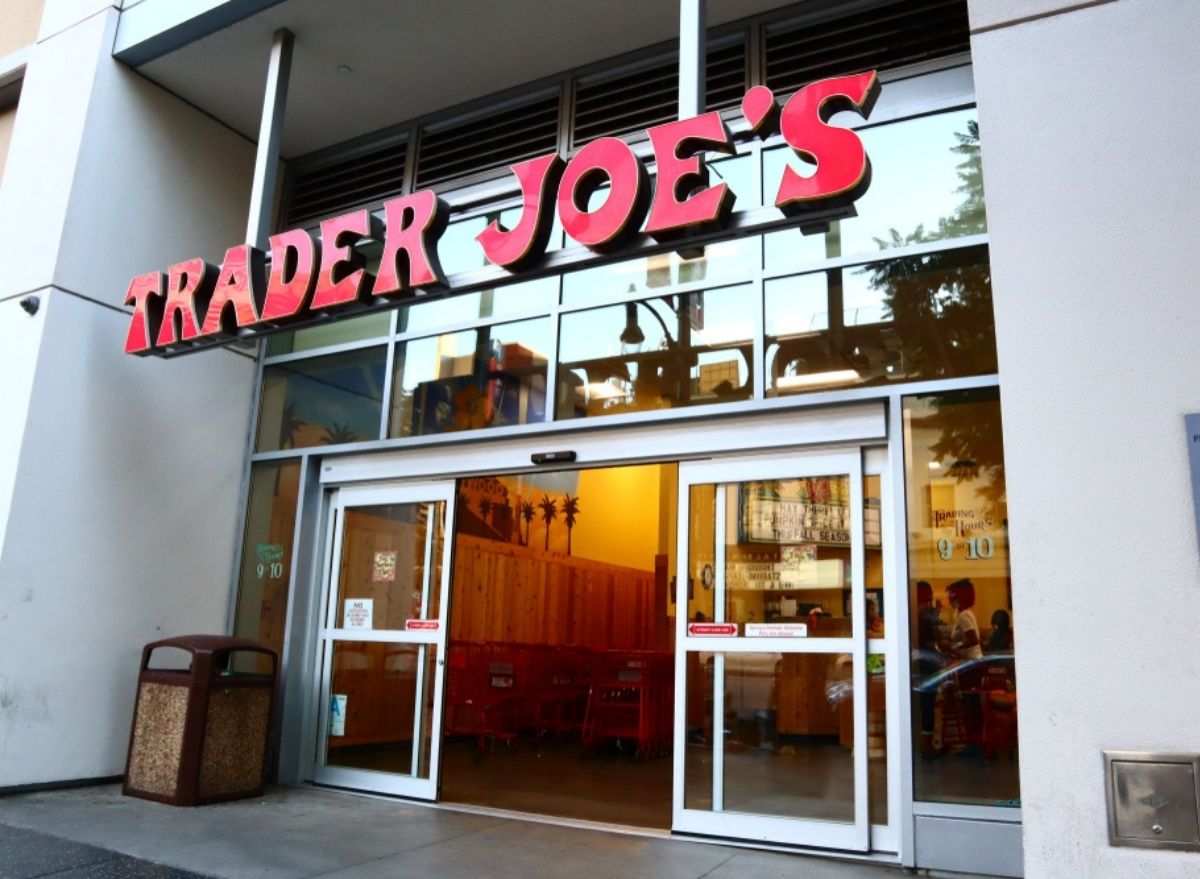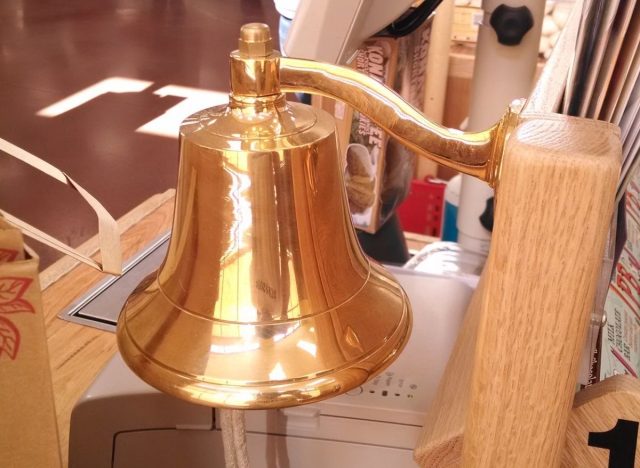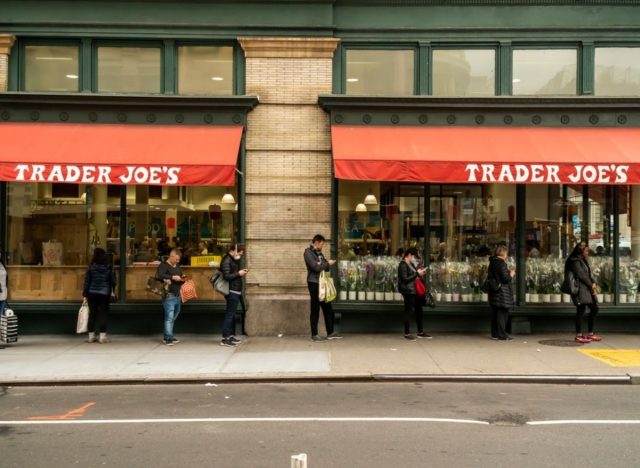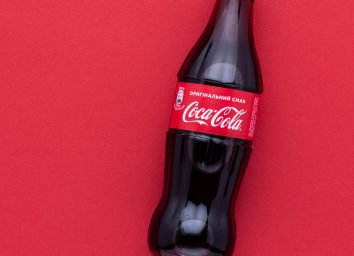7 Strict Rules Trader Joe's Employees Have to Follow

People who love Trader Joe's really love Trader Joe's, and honestly, what's not to love? It's affordable, has great snacks, grocery short-cuts, a freezer section with lots of simple and delicious meals, and of course, well-priced wine. It's also staffed by the most friendly, helpful employees, but we can't help wondering if it's as great to work there as it is to shop there. Read on to find out what it's like to work there and what kind of bizarre rules Trader Joe's employees have to follow.
The shirt you wear is part of workplace hierarchy.

While we might see the tropical-influenced shirts as part of the fun of Trader Joe's, the distinctions between the shirts actually represent rank in the Trader Joe's hierarchy, according to Spoon University. Rank-and-file staffers, known as "crew members" have to wear solid color t-shirts with flowers on the back, while the store leaders are the ones wearing the button-down Hawaiian print shirts. Plus, adds the Trader Joe's website, the 'vibrant, bold shirts are the "uniform" worn by our Crew of adventurous traders on the culinary seas."
Those bells are a type of morse code.

And those shirts aren't the only maritime-themed items in the store. If you've shopped at TJ's, you've heard cheery bell tones playing over the store's loudspeaker. But you've probably wondered what, if anything, do they mean? According to a post on Reddit, basically, they're there to tell the workers what to do. If you hear one bell, it means the lines are backed up and someone needs to head up front and open another register, two bells mean a cashier needs help from anyone available and three bells mean a crew leader is needed. The idea comes from maritime traders, according to Insider.
You must have personality.

Dan Bane, chairman and CEO of Trader Joe's, said in YouTube video that they used to hire people with strength and grocery experience, but hiring people with personality became much more important. "We really look for people with personality," he said, "People who like people." Everything else can be taught.
You are judged on three things.

To get a raise, you need to focus on three specific areas, according to a former employee, who wrote, "They judge you in 3 areas: Customer experience, productivity, and working as part of a team. If you fall short on even one of these categories it means no raise. You can be the fastest at stocking shelves, and give the best customer experience, but if you find yourself constantly quarreling with other crew members, don't expect a raise."
You represent the store even when you're not working.

Several employees noted that they'll often be recognized by customers when they're not working, and they feel like local celebrities. However, one employee told Refinery29 that the company takes advantage of this, "You kind of become a local celebrity, and the company knows that—they often remind us we're representing the store even in our off hours, and that unwanted pressure can feel strange."
Chatting with customers is encouraged with one rule.

An employee told Business Insider that they are encouraged to be nice and engage with customers, even sharing that they've "discussed politics, religion, movies, philosophy, parenting, and so many other things, all while bagging people's groceries." As long as somewhere in that conversation the crew is emphasizing the values of Trader Joe's, and the customer isn't unhappy, they have the freedom to talk about what they want.
You must follow the principle of Kaizen.

Bane has seven values that he has employees follow. One of those is the Japanese principle of Kaizen, which roughly translated to continuous self-improvement. "For us, that means everybody in the company owes everybody else a better job every day, every year, in what they do," said Bane. They don't budget at the stores in the traditional way. "We just expect our stores to do a little bit better every year," said Bane. "They create their own targets. And it's really paid off some big dividends for us."
A previous version of this article was originally published on May 9, 2022.









